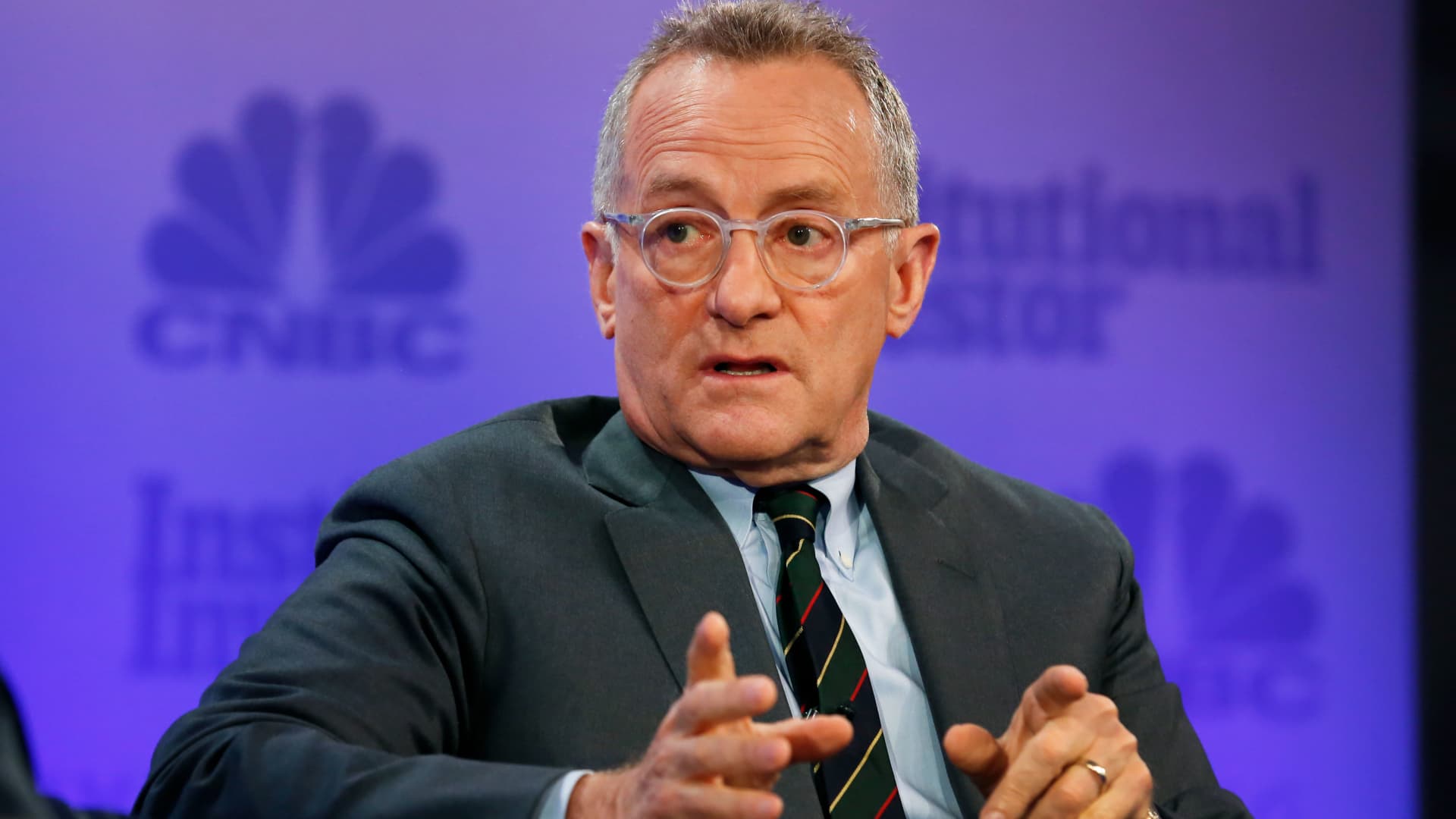Howard Marks, one of the most respected value investors, who famously foresaw the dot-com bubble, is pointing out a handful of red flags in the market such as valuation that could mean poor returns over the long term or a sizable decline nearer term. In his latest memo to clients, the co-founder and co-chairman of Oaktree Capital Management laid out five cautionary signs he’s seeing in the stock market after the S & P 500 ‘s best two-year run since 1998. Marks said he’s not necessarily calling a bubble in stocks since his specialty lies in credit these days, but the memo focuses on signs of froth in equities. “It shouldn’t come as a surprise that the return on an investment is significantly a function of the price paid for it. For that reason, investors clearly shouldn’t be indifferent to today’s market valuation,” Marks wrote. Marks’ memo pegs the S & P 500’s current price-to-earnings ratio at 22. Using data from JPMorgan Asset Management, Marks explained that higher P/E ratios have historically led to lower returns in the long run. Today’s multiple of 22 is near the top of the range, and this level would translate into 10-year returns between plus 2% and minus 2%, the data showed. Rather than poor performance in the long term, it’s also possible that the correction on the multiple is compressed into a short period of time, resulting in sharp, sudden sell-offs much like when the internet bubble burst in the early 2000s, Marks said. .SPX 1Y mountain S & P 500 Apart from valuation, Marks specifically took issue with the “enthusiasm that is being applied to the new thing of AI.” Artificial intelligence emerged as the biggest investing theme over the past two years, pushing key beneficiaries such as Nvidia to jaw-dropping prices. This AI enthusiasm might also have been extended to other high-tech areas, Marks added. Meanwhile, the “implicit presumption” that the biggest seven companies will be too big to fail also concerned him, he said. The so-called Magnificent Seven stocks â a group that includes high fliers such as Nvidia , Microsoft , Apple and Meta Platforms â were responsible for more than half of the S & P 500’s 2024 gain , according to Bespoke Investment Group. Many on Wall Street see more gains ahead for these juggernauts. Marks, whose firm managed $205 billion in assets under management as of September, also raised the question of whether some of the S & P 500’s advance came from automated buying from passive investors, who don’t take value factors into consideration. The 78-year-old investor started writing investment memos in 1990, and they have become required reading on Wall Street. Even Warren Buffett has said he reads them regularly and always learns something from them. Marks said he has been thinking a lot lately of a quote often attributed to Buffett: “When investors forget that corporate profits grow about 7% per year, they tend to get into trouble.” But Marks said he asked his friend Buffett about that phrase and the legendary investor said he never said that. “But I think it’s great, so I keep using it,” wrote Marks.

